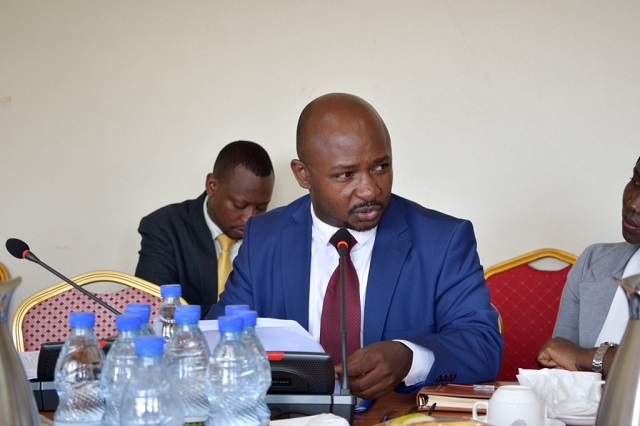
Kampala, Uganda | THE INDEPENDENT | Uganda Law Society-ULS has rejected a proposal in the National Social Security Fund Amendment Bill, 2019 to allow the fund to lend money directly to government.
The Bill seeks to among others amend the NSSF Act, 1985 to provide that the Board of Directors may use in-house expertise or fund managers in the investment of monies including lending to government.
However, ULS has rejected the proposal saying once passed; NSSF will be hijacking the role of Bank of Uganda to lend directly to government.
The ULS Treasurer, Aaron Besigye, said the proposal for government to borrow directly from NSSF is “inappropriate” because among other reasons, direct lending to government is outside the NSSF mandate and is a preserve of Bank of Uganda.
Besigye was speaking during their interface with the Joint Finance and Gender Committee, which is scrutinising the NSSF Amendment Bill, 2019. He also argued that NSSF is also not licensed by BOU as a financial institution.
NSSF is registered as a retirement benefits scheme under the Uganda Retirement Benefits Regulatory Authority Act, 2011, whose functions as a fund manager doesn’t include lending to government.” Besigye said the clause that seeks to allow NSSF to lend to government should be deleted.
Besigye also noted that ULS is also concerned about the safeguards put in place to prevent government from abusing its leverage over NSSF management when borrowing directly from the fund. He said since the NSSF board of directors and senior management are appointed by the Executive, “government may impose unfavorable terms on borrowings from NSSF, at the expense of the savers.”
ULS is therefore proposing that since NSSF is already lending to government through the purchase of treasury bills and bonds issued by Bank of Uganda, there is need to regulate the capital markets much better and facilitate its growth by government seeking long term funding from the capital markets rather than international borrowing.
Besigye said ULS is proposing that government should consider approaching the local capital markets and borrow competitively, which could result in the growth of Uganda’s capital markets where individuals and other pension funds will lend to government.
ULS also wants the tax provisions in the Bill deleted. The Bill proposes that member’s benefits shall be taxed only during payment at 55 years while those who get paid at 60 years and above will not pay taxes on their benefits. The same provision proposes tax exemption for employer’s contributions and employee’s contributions below 30 percent of their income and NSSF investment income.
Besigye argues that while the provision would lead to higher returns because it exempts contributions of less than 30 percent for employees, employers and investment income of the Fund, the lump sum will be taxed at point of withdraw for those under 60 years.
He wonders why government wants members to delay accessing their funds yet Uganda’s current life expectancy is about 50 years. Besigye explained that the provision will arm-twist members into exiting the fund after the retirement age of 55 years.
The Kyegegwa Woman MP, Stella Kiiza asked ULS to clarify what benefits should or shouldn’t be taxed. The Rubanda East County MP, Henry Musasizi noted that the tax provision is the most controversial clause in the Bill.
In his response, Besigye noted that all employer, employee, investment Income of the Fund and benefits should be tax free. He however proposes that members who would like to gain midterm access to their savings should be taxed to encourage long term saving.
Kachumbala County MP, Patrick Isiagi opposed the provision for midterm access, which in the Bill is ring fenced for only voluntary savers.
However, the Bulambuli Woman MP, Sarah Wekomba disagreed with Isiagi, saying that savers may want midterm access to their benefits for purposes of investments such as purchasing land among others.
ULS supports most of the provisions of the Bill which, among others seeks to also cater for the expansion of NSSF coverage through mandatory contribution from all firms that have employees, not a minimum of five workers.
*****
URN
 The Independent Uganda: You get the Truth we Pay the Price
The Independent Uganda: You get the Truth we Pay the Price





